Cradlenet's Guide to Accelerating the Shift to Circular Business Models
A month ago, T.Loop became proud members of Cradlenet – a Swedish network platform for the circular economy. We entered directly into their impressive work with putting together an action guide together with the Exponential Roadmap Initiative.
Cutting emissions and reducing nature impacts from materials in your value chain is a complex task, and many organizations are putting a lot of effort into this matter. Getting a systematic approach can sometimes feel overwhelming.
Therefore, we embrace this initiative from Cradlenet and the Exponential Roadmap Initiative and we recommend to all organizations to download a copy and start exploring your organization's opportunities in the circular economy. In our journey toward sustainability, every action counts. Embracing circularity is not just a business strategy—it's a necessity for a sustainable future. Let's transform challenges into opportunities and lead the change towards a more resilient and sustainable world.
And for you who are eager to know what this is all about, our GPT Chief Mark Loop has made good summary of the report.
Understanding the Circular Economy
The guide underscores the circular economy as an essential model for sustainability, where products and materials are maintained in the economy for as long as possible, reducing waste and resource consumption. By transitioning from the traditional take-make-dispose model to one that emphasizes reuse, recycling, and responsible consumption, businesses can significantly decrease their environmental impacts.
Seven Key Actions for Circular Transformation
Secure Top-Level Commitment: Successful circular transformation begins with unwavering support from top management. Leadership must integrate circular principles into the company’s core strategy to drive meaningful change.
Understand Your Value Chain: A deep dive into your current value chain is crucial. Assessing the flow of materials and products helps pinpoint areas for improvement and opportunities for integrating circular practices.
Integrate Circularity into Your Strategy: Transitioning to circular operations requires a strategic overhaul that considers design, production, and distribution processes. This involves developing new products and business models that accommodate extended lifecycle and recyclability.
Set and Implement KPIs & Plans: Establish clear, measurable key performance indicators (KPIs) that align with circular objectives. These should focus on reducing resource use, enhancing product longevity, and minimizing waste.
Engage Your Value Chain: Collaboration across the supply chain is vital. Engage suppliers, customers, and partners in your circular initiatives to ensure coherence and effectiveness in execution.
Communicate and Influence: Transparency in your circular journey is essential for building trust and accountability. Share your goals, progress, and lessons learned with all stakeholders to foster a culture of sustainability.
Reiterate and Adapt: Circularity is an ongoing process of learning and adaptation. Continuously refine your strategies based on feedback and evolving industry practices to stay ahead in the circular economy.
Tools and Resources for Implementation
The guide also provides practical tools and resources to aid businesses in their transition. These include lifecycle assessments, circular design checklists, and guides on developing circular business models. Each resource is designed to offer specific guidance on implementing circular principles effectively.
Conclusion
The "Circular Action Guide" is more than just a manual; it's a call to action for businesses to rethink their operations and commit to sustainable practices. By adopting the strategies outlined in this guide, companies can not only reduce their environmental impact but also unlock new opportunities for innovation and growth in an increasingly circular economy.

